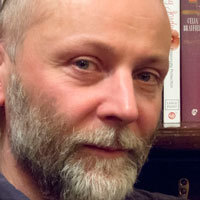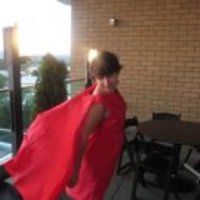Papers by Robert Rosenstone
It is time to end [the] defensive posture and to adopt a different way of looking at historical f... more It is time to end [the] defensive posture and to adopt a different way of looking at historical films, to suggest that such works have already been doing history.
The American Historical Review, Apr 1, 1990
Copyright © 1988 by the President and Fellows of Harvard College All rights reserved Printed in t... more Copyright © 1988 by the President and Fellows of Harvard College All rights reserved Printed in the United States of America 10 987654321 This book is printed on acid-free paper, and its binding materials have been chosen for strength and durability. Library of Congress ...
Yale University Press eBooks, Dec 31, 2020
The Journal of American History, Mar 1, 1981
Reviews in American History, Sep 1, 1979
... of Marxian Socialism in the United States" (in Socialism and American Life, ed. Persons ... more ... of Marxian Socialism in the United States" (in Socialism and American Life, ed. Persons and Donald Drew Egbert [1952]), best re ... This was followed by James Weinstein's The Ambiguous Legacy: The Left in American Politics (1975), a work which combined scholarship and ...
The American Historical Review, Dec 1, 1982
Resources for American Literary Study, 1985
Routledge eBooks, Jul 28, 2017
Routledge eBooks, Jul 28, 2017
Rethinking History, Jan 2, 2021
ABSTRACT This is the text of a talk I was scheduled to deliver at a Wesleyan University conferenc... more ABSTRACT This is the text of a talk I was scheduled to deliver at a Wesleyan University conference in April 2020 (canceled due to Covid-19) devoted to the memory and work of Hayden White. Based on issues surrounding the relationship of an innovative historical narrative to the work of theorists, and White, in particular, it argues that innovation arises from a nontheoretical mindset, but needs interaction with theorists as a commentary on the new forms of history innovation proposes.
The Journal of American History, Dec 1, 1970
New material this edition copyright © 2009 by Transaction Publishers, New Brunswick, New Jersey. ... more New material this edition copyright © 2009 by Transaction Publishers, New Brunswick, New Jersey. Originally published in 1969 by Western Publishing Company, Inc. All rights reserved under International and Pan-American Copyright Conven- tions. No part of this book may ...

Antioch Review, 2016
Haj. That’s what I wanted to call our trip. Aisha objected. Haj does not mean pilgrimage, she exp... more Haj. That’s what I wanted to call our trip. Aisha objected. Haj does not mean pilgrimage, she explained. It’s the specific pilgrimage to Mecca that every Muslim must make at least once during adulthood, a journey dedicated to purifying and cleansing oneself and renewing one’s faith. Haj is certainly not something Aisha (or anybody else) would associate with Jews, though I am tempted use the word, pilgrimage, for the annual winter trek from Montreal to Miami Beach made in the middle of last century by my parents, aunts, and uncles. Were not the feelings of these once penniless immigrants during those warm weeks of lounging in plush lobbies and devouring lavish meals in the dining rooms of luxury hotels not tinged with a certain kind of holiness? The pilgrimage was to Cordoba, Spain, but like all such journeys it would involve lots of stops along the way. It was a country we had visited many times. Shortly after our marriage, Aisha and I had spent six months in Barcelona, supported by a Fulbright Fellowship for teaching and research. A thousand years before we took up residence in what to locals is Catalonia, but to the rest of the world, Spain, the Iberian Peninsula had been the site of one of those glorious civilizations which for a few decades light up the largely dark and painful history of humankind. Al Andalus, as it was called by its Muslim rulers, the Sepharad, as it came to be known to its Jewish minority, was for seven centuries a wealthy and relatively enlightened, progressive, and tolerant realm in which science, scholarship, and the arts flourished and the three religions which look back to Abraham lived for the most part in a kind of harmony (with the occasional brief and violent setback).
Reviews in American History, Jun 1, 1976
Annals of The American Academy of Political and Social Science, 1974
Journal of Interdisciplinary History, Jun 1, 2006
The history of the relationship between science and religion has been the focus of a growing numb... more The history of the relationship between science and religion has been the focus of a growing number of books and collections in the almost twenty years that have elapsed since the publication of the present edi- tors' earlier volume, God and Nature. 1 Like its predecessor, the book ...
Reviews in American History, Sep 1, 1987
Vingtième siècle, revue d'histoire, 1995
Like writing history with lightning: historical truth/historical films, Robert A. Rosenstone. His... more Like writing history with lightning: historical truth/historical films, Robert A. Rosenstone. Historical films often leave historians perplexed. They denounce reconstitution that appeals to émotions more than to the mind and see in it a compétition harmful to their educational mission. The historical film has considerably influenced the public's understanding of the past. Historians nevertheless must therefore use this medium and reflect upon the relations between truth and veracity. Contemporary history can no longer neglect these historical films because the presence of historians on this terrain is a fundamental stake in the development of the culture of our time.
Rethinking History, 2004
Perhaps because I never wanted to be a historian but a novelist, or perhaps because I never had a... more Perhaps because I never wanted to be a historian but a novelist, or perhaps because I never had a single heritage to embrace, I became as a scholar more open to the deconstructive and decentering spirit of postmodernism. Or perhaps it was the events of my life and career which led me in that direction. Whatever the cause, these Confessions










Uploads
Papers by Robert Rosenstone